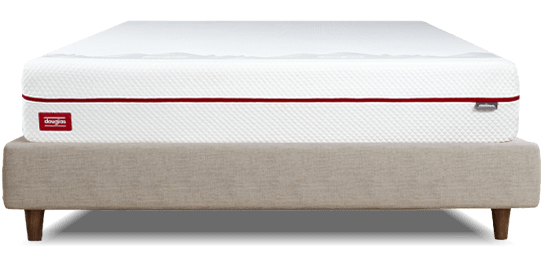Can’t Sleep? Try These 7 Simple Techniques (2024)
Updated: February 13, 2026 | Published: August 15, 2025There are few things more annoying than not being able to sleep at night. If you’re between the ages of 18 and 64, you need 7–9 hours of good-quality sleep on a regular basis.
But if you’re not getting that kind of rest at night, you’re not alone. According to Statistics Canada, up to 3.7 million Canadians struggle with insomnia, with severe consequences including a higher risk of diabetes, heart conditions, and cognitive disorders.
Getting a good night’s sleep is a critical part of your health. In this article, we’ll guide you through techniques for what to do when you just can’t sleep.
Disclaimer: The following tips are general recommendations and aren’t meant to replace your doctor’s professional diagnosis or treatment.
1. Physical Activity
Even if your mind doesn’t switch off easily, your body will if you give it a reason to. Physical activity makes your body spend more energy, making a good workout one of the better ways to help you get to sleep.
In the past, sleep guides used to recommend avoiding exercise at night because of the belief that being too active before bed was too stimulating. But a growing number of sleep studies say otherwise.
You might have a little trouble falling asleep if you exercise less than an hour before bed. But hitting the gym or going for a jog will still help a lot, no matter what time of day it is. Different kinds of exercise may have different benefits, so experiment and figure out which works best for you.
- Moderate-intensity aerobic exercise like running or biking has been scientifically shown to improve sleep in people with insomnia.
- If your insomnia is due to anxiety or depression, resistance exercises (such as lifting weights or doing push-ups) can also help.
- Regularly practicing yoga can also reduce your insomnia symptoms, especially if you’re over the age of 60.
2. Breathing Exercises
One of the simplest ways to fall asleep faster is to change the way you breathe before going to sleep, or while you’re in bed. This can be as simple as just paying attention to the rhythm of your breathing, or mindfully inhaling through your nose and exhaling through your mouth.
If you want a more structured breathing exercise, try the 4-7-8 breathing technique. This easy exercise can help reduce anxiety and help people fall asleep faster.
- Before going to bed, sit down in a comfortable place with your back straight.
- Press the tip of your tongue against the back of your top front teeth and keep it there.
- Exhale through your mouth around your tongue.
- Begin the first 4-7-8 cycle by inhaling through your nose for 4 seconds.
- Hold your breath for seven seconds.
- Exhale through your mouth for eight seconds (remember to keep your tongue pressed against your top front teeth).
- Repeat for three more cycles (four in total). With practice, you can work your way up to eight cycles.
3. Mindful Muscle Relaxation
If counting sheep just doesn’t cut it anymore, you can try the following active muscle relaxation technique. It takes a little practice and should take a full two minutes, so take your time with this one.
- While you’re in bed, relax all the muscles in your head and neck, including the muscles in your mouth.
- Let your shoulders drop to release tension, and move your hands to your sides.
- Breathe in once deeply and exhale, letting your chest muscles relax.
- Relax your thighs and calves.
- Relax your mind for 10 seconds by imagining a relaxing scene. If you’re unable to do so, try thinking (or saying) the phrase “don’t think” for 10 seconds.
4. Develop a Bedtime Routine
A little consistency goes a long way. Not going to bed at the same time every night is one of the most common causes of bad sleep. This technique is the best way to make sure that you don’t just fall asleep, but also stay in bed long enough to get the rest you need. And no, 6 hours of sleep is not enough.
Try the following routine and see if it works for you.
- If you bathe earlier in the day, try taking a warm shower or bath in the evening instead. A good soak in warm water helps your body and mind to relax.
- Have a light bedtime snack. Foods rich in protein and carbohydrates promote the production of serotonin, a neurotransmitter that plays a key role in sleep.
- Read for a while. If you’re struggling with insomnia, this can help your brain start to wind down. Just make sure to choose a book that isn’t too exciting, as this can cause you to stay up later for “just one more chapter.”
- Switch off the lights and the screens 30 minutes before trying to sleep. Light and dark have a major impact on your circadian rhythm, which is your body’s internal clock, so save the stimulation for the morning.
5. Improve Your Sleep Environment
Your bedroom is more than just the place where you rest your head. It’s also an important part of your sleep hygiene. If you’re going to spend a third of your life in one place, then you should make it as welcoming and comfortable as possible.
- Eliminate bedroom clutter. We get it, that pile of laundry on your bed seems like too much trouble to deal with. But you’ll sleep a lot better when you don’t have to shove it to the side to get under the sheets.
- Keep the space around your bed clean, too. Vacuum your bedroom once a week and wipe down all non-floor surfaces with a microfiber cloth so you’re not waking up in (or breathing in) all that dust.
- Wash your bedding once a week, too. Even if folding a fitted sheet is a hassle, nothing beats the feel of going to sleep in clean bedding.
- If you’re too hot or too cold while sleeping, adjust your thermostat. People tend to fall asleep faster when their bedroom is a little cooler than normal room temperature, around 15.5–18 degrees Celsius (60–65 degrees Fahrenheit).
6. Talk to Your Doctor
If your insomnia is really starting to take a toll on your health, mood, and day-to-day life, it’s worth it to talk to your doctor. Depending on the root cause of your insomnia, you may need to look at some of the following options for diagnosis and treatment.
- Your doctor might have you do a sleep study, which involves recording your breathing patterns while you sleep at night. If your breathing is interrupted regularly, especially if you snore, you may be diagnosed with sleep apnea or a related condition. Long-term management of sleep apnea is typically done using a CPAP (continuous positive airway pressure) machine.
- If your insomnia is due to low overall mood and/or anxiety, you may be prescribed medication. It may take a while to find the right medication for you, so be patient with your doctor (and yourself).
- Your doctor may order additional tests to screen for other medical conditions that could cause you to lose sleep. Insomnia is associated with hyperthyroidism and other conditions. Instead of trying to address your insomnia, treatment will focus on the root cause of the problem.
7. Get a Good Mattress
Mattress problems are one of the biggest causes behind bad sleep. If you’ve had your mattress for more than six years, it could be starting to reach the end of its lifespan. Foam sags with time and springs lose their tensile strength, even if you rotate your mattress regularly.
You’re also not doing yourself any favours if you sleep on a mattress that’s too firm (or not firm enough) for your sleep style. Your best bet is to get a medium-firm mattress, especially if you’re a side sleeper or you sleep with a partner. It’s also not a bad idea to get a mattress with a machine-washable cover so that your bed stays fresher for longer.
With a little practice and a little self-discipline, you can and will beat your insomnia. You can choose to get a little more physical activity, practice breathing exercises or mindful muscle relaxation, or develop a better bedtime routine. It might even be a good idea to clean or change up your sleeping space or see your doctor—or invest in a better mattress.
The struggle for better sleep is worth it.


